Events
| Name | organizer | Where |
|---|---|---|
| MBCC “Doing Business with Mongolia seminar and Christmas Receptiom” Dec 10. 2025 London UK | MBCCI | London UK Goodman LLC |
NEWS
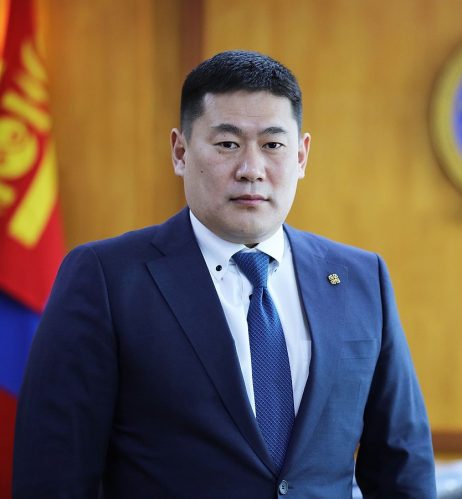
Prime Minister L.Oyun-Erdene meets with his South Korean counterpart www.montsame.mn
Prime Minister of Mongolia L.Oyun-Erdene held a working meeting with the Prime Minister of the Republic of Korea Kim Bu-gyom today.
Prime Minister L.Oyun-Erdene expressed commitment to upgrade the current ‘Comprehensive Partnership’ between Mongolia and the Republic of Korea to ‘Strategic Partnership', increase the frequency of high-level reciprocal visits as soon as the risk of the pandemic subsides, and economic cooperation and advance trade and investment to a new level.
The two sides agreed on the importance of close cooperation in the current difficult situation of the COVID-19 pandemic, and agreed to work more closely to share knowledge, experience and information aimed at overcoming the pandemic. Prime Minister L.Oyun-Erdene thanked the Government of the Republic of Korea for its support and assistance in repatriating Mongolian citizens, conducting charter flights and combating the pandemic, and noted that two sides will continue to work closely to promote people-to-people exchanges. He also asked the Government of the Republic of Korea to support the protection of Mongolians living in the Republic of Korea amid the pandemic and ensure that they are immunized.
Prime Minister L.Oyun-Erdene was informed on the South Korea’s measures and policies on the coordination of the school activities, COVID-19 treatments and economic recovery. They also touched upon the current situation of the pandemic in the two countries, spread of the delta variant in the ROK, the effectiveness of vaccine immunization and COVID-19 treatment.
Congratulating the people of Mongolia on the 100th anniversary of the People’s Revolution, Prime Minister Kim Boo-kyum shared his memories of visiting Mongolia six years ago to experience the beautiful nature. He said that he wishes more South Korean tourists to visit and explore Mongolia.
Moreover, Prime Minister Kim Boo-kyum thanked the Government of Mongolia for supporting the Northeast Asia Cooperation Initiative for Infectious Disease Control and Public Health, and the New Northern Policy proposed by the ROK. He then expressed his desire to further strengthen the regional and bilateral cooperation in the fields of infection control and health, and intensify cooperation in the fields of transportation, energy and logistics.
Prime Minister L.Oyun-Erdene also exchanged views on increasing investment and joint implementation of major development projects and programs within the framework of the regional initiative proposed by the Republic of Korea.
At the end of the meeting, the Prime Ministers agreed to deepen cooperation in the international and regional arenas, especially in the field of peace and security in Northeast Asia.
Following the meeting, Prime Minister L.Oyun-Erdene is scheduled to hold a meeting with the President of EXIM Bank of the Republic of Korea and representatives of infrastructure investment corporations.

“Mongolia meets Scotland" – in Italy! www.herocashmere.com
The directors of Avant Cashmere and Hero Cashmere are in Milan this week discussing plans for their next collaborations. In spite of Covid-19, the two have managed to come together in the Italian fashion capital to work on some creative projects. Keep an eye on these two promising brands over the coming months.
Both Tuul and Carrie are grateful to MBD www.mongolianbusinessdatabase.com and Serod Ichinkhorloo for excellent advisory services in doing business across borders.”

Silver for former refugee judoka Mollaei (Mongolian) www.nhk.or.jp
In the Tokyo Olympics, Iranian-born judoka Saeid Mollaei has won the silver medal in the men's 81-kilogram category.
He's representing Mongolia at the Games after a long-running diplomatic row.
Mollaei lost to Japan's Nagase Takanori in the final match on Tuesday evening.
In the background is his claim that he was pressured by Iranian authorities to withdraw from the World Championships in 2019, to avoid the possibility of a match against an Israeli opponent.
Tehran does not recognize Israel as a state.
The sport's governing body responded by disqualifying Iran's judo federation. Mollaei competed as a refugee instead and eventually acquired Mongolian citizenship.
Twenty-nine athletes are competing in Tokyo on the Refugee Olympic Team. They say they want to send a message of hope to refugees around the world.
Refugee Olympic Team's Rose Nathike Lokonyen said, "We are all human beings, and we can do what others are doing as well. Because no one chooses to be refugees."
Another athlete from South Sudan said he wants to raise awareness and increase support for displaced people through the team's performance.
This is the second time the International Olympic Committee has formed a refugee team, following Rio in 2016.
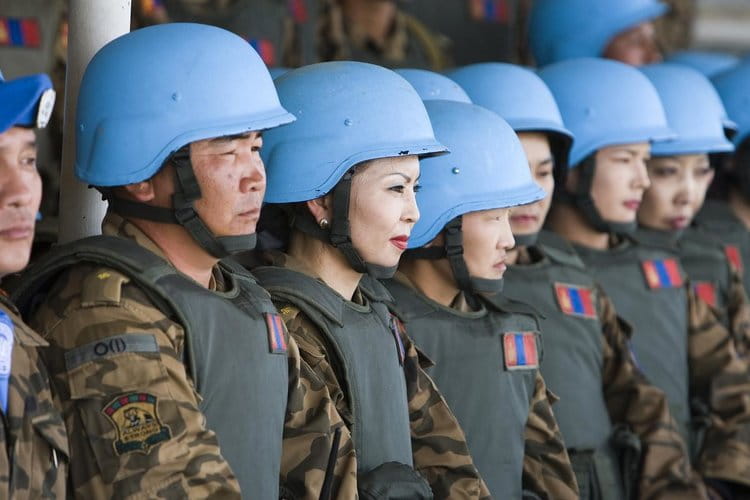
Alaska Guard ends 18-year mission with state partner Mongolia www.army.mil
JOINT BASE ELMENDORF-RICHARDSON, Alaska – Although they didn’t know it when they left their home state in the heat of the pandemic seven months ago, Alaska Army National Guard Capt. Jessica Miller, a registered nurse with the Medical Detachment, and Sgt. 1st Class Juan Restrepo, a logistician in Joint Force Headquarters, were the last rotation of Alaska National Guard liaisons accompanying the Mongolian Expeditionary Task Force to Afghanistan. They flew home to Alaska July 21, ending the mission that began 18 years ago.
Alaska and Mongolia formalized their partnership in 2003 under the National Guard State Partnership Program. Shortly afterward, the Mongolian Armed Forces deployed troops to the Polish base, Camp Charlie, in Al Hillah, Iraq, as part of the multinational security force supporting Operation Iraqi Freedom. After seeing the Illinois National Guard liaisons embedded with their Polish counterparts, the MAF asked the Alaska National Guard to send support in the same manner.
Retired Lt. Col. Steve Wilson departed Alaska for a one-year tour in Iraq in 2004 on the first advising team to support the MAF’s request for AKNG liaisons. This spurred a continual annual rotation of AKNG and MAF deployed together, which would grow to be the longest forward-deployed operational partnership of any State Partnership Program.
“The mission was to advise and assist the Mongolian commander and his expeditionary forces in all interactions with U.S. forces and other coalition units,” said Wilson. “We would help advise mostly in operations and logistics.”
Embedding with the MAF in Iraq optimized their integration with U.S. and coalition forces supporting security operations, Wilson said. It also helped highlight their valuable support to the coalition operations.
“I think it reassured the Mongolians that because we had American Soldiers embedded in that unit, that we were solving the problems of Iraqi security together as one team,” said Wilson.
Five years later, in 2009, the MAF transitioned their troops from Iraq to Afghanistan, and the Alaska Army National Guard liaisons followed.
One member of the first team in Afghanistan was Brig. Gen. Wayne Don, director of Joint Staff for the Alaska National Guard. Being the first liaison team transitioning to the new country brought some challenges.
“Any time you bring a bunch of militaries together as part of a coalition, there can be some logistical and resourcing challenges,” Don said. “Initially, one of the biggest challenges for us over there was getting ammunition for the type of equipment they had.
“We eventually got it figured out,” Don said. “The Mongolians in Iraq were on a Polish base and did such a great job over there. The Polish have like ammo for their equipment, and because they felt such gratitude and affection for the Mongolians and their efforts in Iraq, they actually found a bunch of extra ammunition to provide for them.”
Don said it was relationships like those that helped foster the functioning of the coalition.
“As a participating country, the Mongolians put a condition on their participation that we had to go with them, which is a tremendous nod to the trust within our relationship, both in our countries and our militaries,” said Don. “I don’t recall seeing other participating countries that had that similar relationship.”
For the next decade, the Alaska Army National Guard continued to send liaison teams of one noncommissioned officer and an officer to assist and advise the MAF in the global war on terrorism in Afghanistan.
Finally, in November, Miller and Restrepo embarked on their mission overseas as liaisons. But this rotation did not look like the previous ones for many reasons.
“Our mission first was to make sure that the Mongolians had all of the supplies that they needed: hand sanitizer, PPE, masks, wipes, and stuff like that,” said Miller. “They were the security forces on New Kabul Compound where we were stationed, so they came into contact with Afghans, the British, the Scottish, the Danes, lots of different people. So, we had to make sure they were fully protected.”
In addition to the challenges brought on by COVID-19 of finding limited resources, Miller and Restrepo started to see New Kabul Compound dwindle in numbers of personnel as the camp was shutting down.
“From December to April, lots of people were still going home, so we saw a shortage of personnel as well as resources,” said Miller. “We actually didn’t find out until about April that we were closing the camp.”
The Mongolian soldiers returned to their home country the first week of June.
“We coordinated with the U.S. Embassy and the general staff in Mongolia to get all of their cargo that they’ve had ever since they started supporting the mission in Afghanistan,” said Miller. “They had quite a bit of gear.”
Additionally, Miller and Restrepo were responsible for coordinating the MAF flights back to Mongolia, COVID-19 testing, and ensuring that all cargo and personnel made it back smoothly.
“It’s extremely humbling [to be the final rotation],” said Miller. “I’m very, very grateful that I was chosen for this mission. The impact that Alaska has had with Mongolia is very positive, and I think that this mission was very significant in strengthening that relationship.”
After 18 continuous years, what started out as a professional partnership for many has grown into something lasting. And the partnership continues.
“The partnership originally began as a strong relationship, which eventually evolved into a friendship,” said Wilson, “So, connections were made, and I still keep in correspondence with my Mongolian friends that I deployed with to Iraq in 2004 and 2005.”
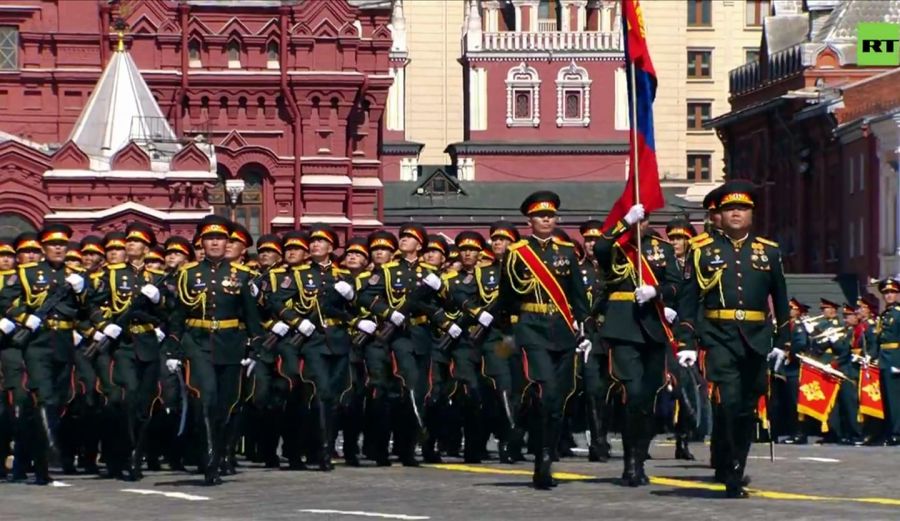
China, Mongolia vow to enhance military cooperation, maintain regional stability www.xinhuanet.com
BEIJING, July 26 -- Chinese State Councilor and Defense Minister General Wei Fenghe held talks with Mongolian Defense Minister Gursed Saikhanbayar in Ulaanbaatar on July 26.
Wei Fenghe said that China and Mongolia are friendly neighbors linked by mountains and rivers, and the building of community with a shared future for the two countries has achieved continuous and concrete progress.
Since the outbreak of the Covid-19 pandemic, the two countries stood by and helped each other, overcame difficulties together, setting a model of anti-pandemic cooperation between neighboring countries and injecting positive energy into the turbulent and restless world, Wei said.
The two sides should continue to firmly support each other's core interests and major concerns, and meanwhile, maintain sharp vigilance against extraterritorial forces’ interfering in regional affairs, and jointly safeguard regional security and stability, Wei added.
Gen. Wei told his Mongolian counterpart that the Chinese military is willing to work with the Mongolian side to implement the important consensus reached by the leaders of the two countries, enhance strategic mutual trust and expand pragmatic cooperation, with the aim of making greater contributions to the sound and stable development of the comprehensive strategic partnership between the two countries.
Saikhanbayar expressed his congratulations on the 100th anniversary of the founding of the Communist Party of China. He said that Mongolia highly appreciates China's great achievements that has been acknowledged throughout the world and its decisive victory in building of a moderately prosperous society in all respects, and sincerely thanks China for its support and assistance to Mongolia in anti-pandemic campaign and trade.
The Mongolian side attaches great importance to bilateral relations and will continue to promote pragmatic cooperation with China in defense and security areas, and strengthen communication and coordination on regional issues, making positive efforts for regional peace and tranquility, Saikhanbayar said.
Before their talks, Saikhanbayar held a welcome ceremony for Wei Fenghe and presented him with a horse. On the afternoon, Gombojav Zandanshatar, chairman of the State Great Hural, which is Mongolia's parliament, met with Wei Fenghe.
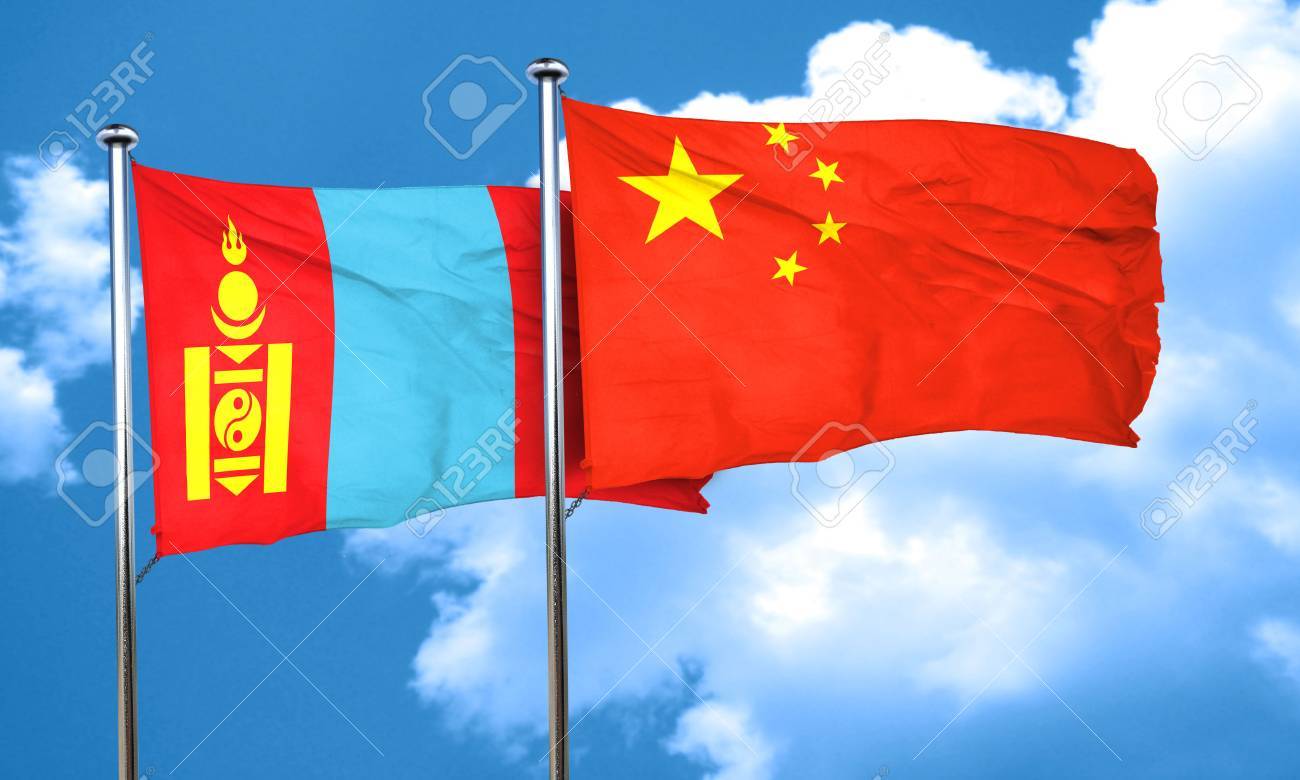
Foreign Minister’s visit to China begins www.montsame.mn
Minister of Foreign Affairs B.Battsetseg has arrived in Tianjin, China for her official visit to the People’s Republic of China.
The Foreign Minister of Mongolia is holding talks with the country’s State Councilor and Minister of Foreign Affairs Wang Yi this afternoon
Embassy of DPRK extends greetings www.montsame.mn
On the occasion of the 100th anniversary of the establishment of MONTSAME News Agency, Ambassador Extraordinary and Plenipotentiary of the Democratic People's Republic of Korea to Mongolia Mr. O Sung Ho extended greetings.
“Director-General of MONTSAME News Agency, Ms. Ganchimeg Badamdorj,
On the occasion of the 100th anniversary of the foundation of MONTSAME News Agency, the Embassy of DPRK to Mongolia would like to extend greetings and express heartfelt congratulations to you and the entire staff of the MONTSAME.
We are pleased to say that during the past 100 years, the most respected news agency in Mongolia, MONTSAME has been accepted as a news agency that promotes the various efforts of the people as well as the traditional culture and history of Mongolia to the world for the country's development and prosperity, alongside timely delivering information about international political events in an accurate way to its people.
I would also like to use this opportunity to express that we firmly believe that MONTSAME will closely cooperate with the Embassy of DPRK further developing and strengthening cooperation with the Korean Central News Agency (KCNA), expanding the traditional friendly relations between the two countries.
The Embassy of DPRK to Mongolia once again expresses its great respect for the MONTSAME News Agency. We wish dear Ms. Ganchimeg and your team great success in all your endeavors and good health.”

Copper price highest in 6 weeks as flooding in China raises supply concerns www.mining.com
Copper prices jumped on Monday as floods in China sparked demand hopes at a time when inventories are falling.
Copper for delivery in September rose 4.5% from Friday’s settlement price, touching $4.602 per pound ($10,120 per tonne) midday Monday on the Comex market in New York.
SIGN UP FOR THE COPPER DIGEST
Benchmark copper on the London Metal Exchange was up 0.9% at $9,604.50 per tonne in official trading, after touching its highest since June 16 at $9,665 per tonne.
Floods in central China, especially in the industrial and transport hub city of Zhengzhou in Henan province, have raised supply concerns and demand for rebuilding damaged infrastructure.
Flooding has caused at least $10 billion in damage, according to state media.
“Sentiment has brightened again in the last few days, reflected in the copper price,” Commerzbank analyst Daniel Briesemann said, adding he believed copper was due for a correction.
A Singapore-based trader said the market was pricing in disruptions to output from floods in Henan and demand for reconstruction.
Related read: Are copper prices in a supercycle? A 120-year perspective.
Copper prices have been advancing after China revealed that will release fewer metals reserves than expected.
China will sell another 30,000 tonnes of copper, 90,000 tonnes of aluminum, and 50,000 tonnes of zinc at auction from its state reserves on July 29.
The auction will mark the second sale this month as the government aims to rein in skyrocketing commodity prices.
“It is slightly less than the market expected but it should be priced in already as it’s pretty well flagged,” said Anna Stablum, a commodities broker at Marex Spectron.
(With files from Reuters)
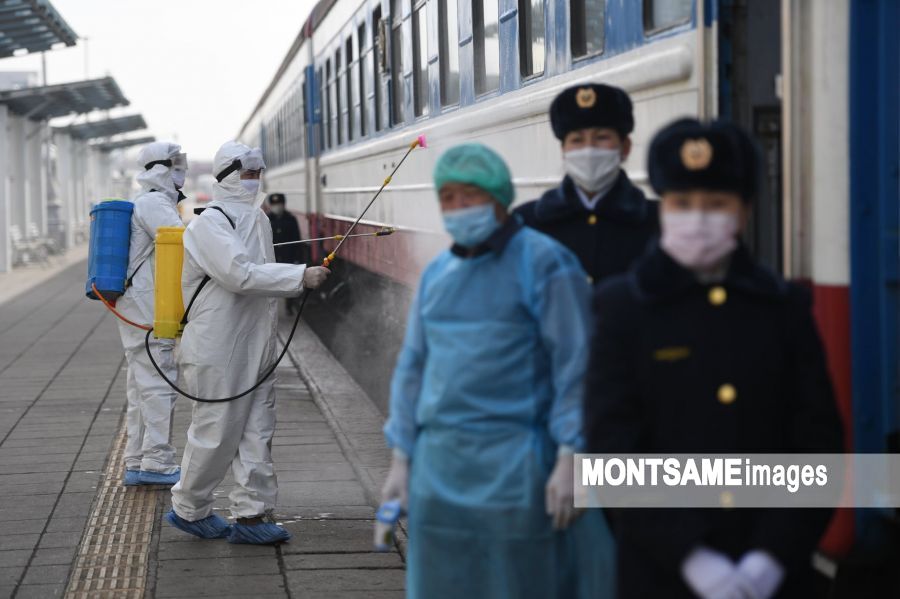
Mongolia reports 1,115 new COVID-19 cases www.xinhuanet.com
July 27 (Xinhua) -- The COVID-19 cases in Mongolia rose by 1,115 over the past 24 hours to 159,101, the health ministry said Tuesday.
A total of 7,408 samples were tested in the past day, and most of the new cases were local infections.
Meanwhile, seven more patients aged 41-80 died from the disease in the past day, taking the total to 816.
The Asian country began a nationwide COVID-19 vaccination campaign in late February, aiming to cover at least 60 percent of its 3.3-million population.
So far, nearly 60 percent of the country's population have received two jabs.
The country is planning to introduce the third doses of COVID-19 vaccines starting late August as part of further measures to combat the pandemic, according to the ministry.

Ono claims his 2nd judo gold, 4th of Games for Japan (Mongolia's second bronze medal) www.asahi.com
Judo superstar Shohei Ono has won his second Olympic gold medal after an epic lightweight final against Georgia’s Lasha Shavdatuashvili.
Ono and Shavdatuashvili went 5:26 into golden score before the Japanese champion finally threw Shavdatuashvili for a waza ari. He used both legs to get Shavdatuashvili airborne and put him harshly onto his left side.
Shavdatuashvili showed no fear against Ono, who hasn’t lost a judo match since 2015. Ono was called for two penalties in golden score against the Georgian contender, who fought more aggressively and dramatically avoided being caught in a match-ending throw one minute before Ono ended it.
Ono is Japan’s fourth gold medalist in six weight classes so far in Tokyo in judo, the nation’s homegrown martial art. Japanese judokas have also won one silver and one bronze.
South Korea’s An Changrim claimed one bronze medal after a thrilling bout with Azeri No. 1 seed Rustam Orujov, and Mongolia’s Tsogtbaatar Tsend-Ochir claimed the other bronze.
- «
- 1
- 2
- 3
- 4
- 5
- 6
- 7
- 8
- 9
- 10
- 11
- 12
- 13
- 14
- 15
- 16
- 17
- 18
- 19
- 20
- 21
- 22
- 23
- 24
- 25
- 26
- 27
- 28
- 29
- 30
- 31
- 32
- 33
- 34
- 35
- 36
- 37
- 38
- 39
- 40
- 41
- 42
- 43
- 44
- 45
- 46
- 47
- 48
- 49
- 50
- 51
- 52
- 53
- 54
- 55
- 56
- 57
- 58
- 59
- 60
- 61
- 62
- 63
- 64
- 65
- 66
- 67
- 68
- 69
- 70
- 71
- 72
- 73
- 74
- 75
- 76
- 77
- 78
- 79
- 80
- 81
- 82
- 83
- 84
- 85
- 86
- 87
- 88
- 89
- 90
- 91
- 92
- 93
- 94
- 95
- 96
- 97
- 98
- 99
- 100
- 101
- 102
- 103
- 104
- 105
- 106
- 107
- 108
- 109
- 110
- 111
- 112
- 113
- 114
- 115
- 116
- 117
- 118
- 119
- 120
- 121
- 122
- 123
- 124
- 125
- 126
- 127
- 128
- 129
- 130
- 131
- 132
- 133
- 134
- 135
- 136
- 137
- 138
- 139
- 140
- 141
- 142
- 143
- 144
- 145
- 146
- 147
- 148
- 149
- 150
- 151
- 152
- 153
- 154
- 155
- 156
- 157
- 158
- 159
- 160
- 161
- 162
- 163
- 164
- 165
- 166
- 167
- 168
- 169
- 170
- 171
- 172
- 173
- 174
- 175
- 176
- 177
- 178
- 179
- 180
- 181
- 182
- 183
- 184
- 185
- 186
- 187
- 188
- 189
- 190
- 191
- 192
- 193
- 194
- 195
- 196
- 197
- 198
- 199
- 200
- 201
- 202
- 203
- 204
- 205
- 206
- 207
- 208
- 209
- 210
- 211
- 212
- 213
- 214
- 215
- 216
- 217
- 218
- 219
- 220
- 221
- 222
- 223
- 224
- 225
- 226
- 227
- 228
- 229
- 230
- 231
- 232
- 233
- 234
- 235
- 236
- 237
- 238
- 239
- 240
- 241
- 242
- 243
- 244
- 245
- 246
- 247
- 248
- 249
- 250
- 251
- 252
- 253
- 254
- 255
- 256
- 257
- 258
- 259
- 260
- 261
- 262
- 263
- 264
- 265
- 266
- 267
- 268
- 269
- 270
- 271
- 272
- 273
- 274
- 275
- 276
- 277
- 278
- 279
- 280
- 281
- 282
- 283
- 284
- 285
- 286
- 287
- 288
- 289
- 290
- 291
- 292
- 293
- 294
- 295
- 296
- 297
- 298
- 299
- 300
- 301
- 302
- 303
- 304
- 305
- 306
- 307
- 308
- 309
- 310
- 311
- 312
- 313
- 314
- 315
- 316
- 317
- 318
- 319
- 320
- 321
- 322
- 323
- 324
- 325
- 326
- 327
- 328
- 329
- 330
- 331
- 332
- 333
- 334
- 335
- 336
- 337
- 338
- 339
- 340
- 341
- 342
- 343
- 344
- 345
- 346
- 347
- 348
- 349
- 350
- 351
- 352
- 353
- 354
- 355
- 356
- 357
- 358
- 359
- 360
- 361
- 362
- 363
- 364
- 365
- 366
- 367
- 368
- 369
- 370
- 371
- 372
- 373
- 374
- 375
- 376
- 377
- 378
- 379
- 380
- 381
- 382
- 383
- 384
- 385
- 386
- 387
- 388
- 389
- 390
- 391
- 392
- 393
- 394
- 395
- 396
- 397
- 398
- 399
- 400
- 401
- 402
- 403
- 404
- 405
- 406
- 407
- 408
- 409
- 410
- 411
- 412
- 413
- 414
- 415
- 416
- 417
- 418
- 419
- 420
- 421
- 422
- 423
- 424
- 425
- 426
- 427
- 428
- 429
- 430
- 431
- 432
- 433
- 434
- 435
- 436
- 437
- 438
- 439
- 440
- 441
- 442
- 443
- 444
- 445
- 446
- 447
- 448
- 449
- 450
- 451
- 452
- 453
- 454
- 455
- 456
- 457
- 458
- 459
- 460
- 461
- 462
- 463
- 464
- 465
- 466
- 467
- 468
- 469
- 470
- 471
- 472
- 473
- 474
- 475
- 476
- 477
- 478
- 479
- 480
- 481
- 482
- 483
- 484
- 485
- 486
- 487
- 488
- 489
- 490
- 491
- 492
- 493
- 494
- 495
- 496
- 497
- 498
- 499
- 500
- 501
- 502
- 503
- 504
- 505
- 506
- 507
- 508
- 509
- 510
- 511
- 512
- 513
- 514
- 515
- 516
- 517
- 518
- 519
- 520
- 521
- 522
- 523
- 524
- 525
- 526
- 527
- 528
- 529
- 530
- 531
- 532
- 533
- 534
- 535
- 536
- 537
- 538
- 539
- 540
- 541
- 542
- 543
- 544
- 545
- 546
- 547
- 548
- 549
- 550
- 551
- 552
- 553
- 554
- 555
- 556
- 557
- 558
- 559
- 560
- 561
- 562
- 563
- 564
- 565
- 566
- 567
- 568
- 569
- 570
- 571
- 572
- 573
- 574
- 575
- 576
- 577
- 578
- 579
- 580
- 581
- 582
- 583
- 584
- 585
- 586
- 587
- 588
- 589
- 590
- 591
- 592
- 593
- 594
- 595
- 596
- 597
- 598
- 599
- 600
- 601
- 602
- 603
- 604
- 605
- 606
- 607
- 608
- 609
- 610
- 611
- 612
- 613
- 614
- 615
- 616
- 617
- 618
- 619
- 620
- 621
- 622
- 623
- 624
- 625
- 626
- 627
- 628
- 629
- 630
- 631
- 632
- 633
- 634
- 635
- 636
- 637
- 638
- 639
- 640
- 641
- 642
- 643
- 644
- 645
- 646
- 647
- 648
- 649
- 650
- 651
- 652
- 653
- 654
- 655
- 656
- 657
- 658
- 659
- 660
- 661
- 662
- 663
- 664
- 665
- 666
- 667
- 668
- 669
- 670
- 671
- 672
- 673
- 674
- 675
- 676
- 677
- 678
- 679
- 680
- 681
- 682
- 683
- 684
- 685
- 686
- 687
- 688
- 689
- 690
- 691
- 692
- 693
- 694
- 695
- 696
- 697
- 698
- 699
- 700
- 701
- 702
- 703
- 704
- 705
- 706
- 707
- 708
- 709
- 710
- 711
- 712
- 713
- 714
- 715
- 716
- 717
- 718
- 719
- 720
- 721
- 722
- 723
- 724
- 725
- 726
- 727
- 728
- 729
- 730
- 731
- 732
- 733
- 734
- 735
- 736
- 737
- 738
- 739
- 740
- 741
- 742
- 743
- 744
- 745
- 746
- 747
- 748
- 749
- 750
- 751
- 752
- 753
- 754
- 755
- 756
- 757
- 758
- 759
- 760
- 761
- 762
- 763
- 764
- 765
- 766
- 767
- 768
- 769
- 770
- 771
- 772
- 773
- 774
- 775
- 776
- 777
- 778
- 779
- 780
- 781
- 782
- 783
- 784
- 785
- 786
- 787
- 788
- 789
- 790
- 791
- 792
- 793
- 794
- 795
- 796
- 797
- 798
- 799
- 800
- 801
- 802
- 803
- 804
- 805
- 806
- 807
- 808
- 809
- 810
- 811
- 812
- 813
- 814
- 815
- 816
- 817
- 818
- 819
- 820
- 821
- 822
- 823
- 824
- 825
- 826
- 827
- 828
- 829
- 830
- 831
- 832
- 833
- 834
- 835
- 836
- 837
- 838
- 839
- 840
- 841
- 842
- 843
- 844
- 845
- 846
- 847
- 848
- 849
- 850
- 851
- 852
- 853
- 854
- 855
- 856
- 857
- 858
- 859
- 860
- 861
- 862
- 863
- 864
- 865
- 866
- 867
- 868
- 869
- 870
- 871
- 872
- 873
- 874
- 875
- 876
- 877
- 878
- 879
- 880
- 881
- 882
- 883
- 884
- 885
- 886
- 887
- 888
- 889
- 890
- 891
- 892
- 893
- 894
- 895
- 896
- 897
- 898
- 899
- 900
- 901
- 902
- 903
- 904
- 905
- 906
- 907
- 908
- 909
- 910
- 911
- 912
- 913
- 914
- 915
- 916
- 917
- 918
- 919
- 920
- 921
- 922
- 923
- 924
- 925
- 926
- 927
- 928
- 929
- 930
- 931
- 932
- 933
- 934
- 935
- 936
- 937
- 938
- 939
- 940
- 941
- 942
- 943
- 944
- 945
- 946
- 947
- 948
- 949
- 950
- 951
- 952
- 953
- 954
- 955
- 956
- 957
- 958
- 959
- 960
- 961
- 962
- 963
- 964
- 965
- 966
- 967
- 968
- 969
- 970
- 971
- 972
- 973
- 974
- 975
- 976
- 977
- 978
- 979
- 980
- 981
- 982
- 983
- 984
- 985
- 986
- 987
- 988
- 989
- 990
- 991
- 992
- 993
- 994
- 995
- 996
- 997
- 998
- 999
- 1000
- 1001
- 1002
- 1003
- 1004
- 1005
- 1006
- 1007
- 1008
- 1009
- 1010
- 1011
- 1012
- 1013
- 1014
- 1015
- 1016
- 1017
- 1018
- 1019
- 1020
- 1021
- 1022
- 1023
- 1024
- 1025
- 1026
- 1027
- 1028
- 1029
- 1030
- 1031
- 1032
- 1033
- 1034
- 1035
- 1036
- 1037
- 1038
- 1039
- 1040
- 1041
- 1042
- 1043
- 1044
- 1045
- 1046
- 1047
- 1048
- 1049
- 1050
- 1051
- 1052
- 1053
- 1054
- 1055
- 1056
- 1057
- 1058
- 1059
- 1060
- 1061
- 1062
- 1063
- 1064
- 1065
- 1066
- 1067
- 1068
- 1069
- 1070
- 1071
- 1072
- 1073
- 1074
- 1075
- 1076
- 1077
- 1078
- 1079
- 1080
- 1081
- 1082
- 1083
- 1084
- 1085
- 1086
- 1087
- 1088
- 1089
- 1090
- 1091
- 1092
- 1093
- 1094
- 1095
- 1096
- 1097
- 1098
- 1099
- 1100
- 1101
- 1102
- 1103
- 1104
- 1105
- 1106
- 1107
- 1108
- 1109
- 1110
- 1111
- 1112
- 1113
- 1114
- 1115
- 1116
- 1117
- 1118
- 1119
- 1120
- 1121
- 1122
- 1123
- 1124
- 1125
- 1126
- 1127
- 1128
- 1129
- 1130
- 1131
- 1132
- 1133
- 1134
- 1135
- 1136
- 1137
- 1138
- 1139
- 1140
- 1141
- 1142
- 1143
- 1144
- 1145
- 1146
- 1147
- 1148
- 1149
- 1150
- 1151
- 1152
- 1153
- 1154
- 1155
- 1156
- 1157
- 1158
- 1159
- 1160
- 1161
- 1162
- 1163
- 1164
- 1165
- 1166
- 1167
- 1168
- 1169
- 1170
- 1171
- 1172
- 1173
- 1174
- 1175
- 1176
- 1177
- 1178
- 1179
- 1180
- 1181
- 1182
- 1183
- 1184
- 1185
- 1186
- 1187
- 1188
- 1189
- 1190
- 1191
- 1192
- 1193
- 1194
- 1195
- 1196
- 1197
- 1198
- 1199
- 1200
- 1201
- 1202
- 1203
- 1204
- 1205
- 1206
- 1207
- 1208
- 1209
- 1210
- 1211
- 1212
- 1213
- 1214
- 1215
- 1216
- 1217
- 1218
- 1219
- 1220
- 1221
- 1222
- 1223
- 1224
- 1225
- 1226
- 1227
- 1228
- 1229
- 1230
- 1231
- 1232
- 1233
- 1234
- 1235
- 1236
- 1237
- 1238
- 1239
- 1240
- 1241
- 1242
- 1243
- 1244
- 1245
- 1246
- 1247
- 1248
- 1249
- 1250
- 1251
- 1252
- 1253
- 1254
- 1255
- 1256
- 1257
- 1258
- 1259
- 1260
- 1261
- 1262
- 1263
- 1264
- 1265
- 1266
- 1267
- 1268
- 1269
- 1270
- 1271
- 1272
- 1273
- 1274
- 1275
- 1276
- 1277
- 1278
- 1279
- 1280
- 1281
- 1282
- 1283
- 1284
- 1285
- 1286
- 1287
- 1288
- 1289
- 1290
- 1291
- 1292
- 1293
- 1294
- 1295
- 1296
- 1297
- 1298
- 1299
- 1300
- 1301
- 1302
- 1303
- 1304
- 1305
- 1306
- 1307
- 1308
- 1309
- 1310
- 1311
- 1312
- 1313
- 1314
- 1315
- 1316
- 1317
- 1318
- 1319
- 1320
- 1321
- 1322
- 1323
- 1324
- 1325
- 1326
- 1327
- 1328
- 1329
- 1330
- 1331
- 1332
- 1333
- 1334
- 1335
- 1336
- 1337
- 1338
- 1339
- 1340
- 1341
- 1342
- 1343
- 1344
- 1345
- 1346
- 1347
- 1348
- 1349
- 1350
- 1351
- 1352
- 1353
- 1354
- 1355
- 1356
- 1357
- 1358
- 1359
- 1360
- 1361
- 1362
- 1363
- 1364
- 1365
- 1366
- 1367
- 1368
- 1369
- 1370
- 1371
- 1372
- 1373
- 1374
- 1375
- 1376
- 1377
- 1378
- 1379
- 1380
- 1381
- 1382
- 1383
- 1384
- 1385
- 1386
- 1387
- 1388
- 1389
- 1390
- 1391
- 1392
- 1393
- 1394
- 1395
- 1396
- 1397
- 1398
- 1399
- 1400
- 1401
- 1402
- 1403
- 1404
- 1405
- 1406
- 1407
- 1408
- 1409
- 1410
- 1411
- 1412
- 1413
- 1414
- 1415
- 1416
- 1417
- 1418
- 1419
- 1420
- 1421
- 1422
- 1423
- 1424
- 1425
- 1426
- 1427
- 1428
- 1429
- 1430
- 1431
- 1432
- 1433
- 1434
- 1435
- 1436
- 1437
- 1438
- 1439
- 1440
- 1441
- 1442
- 1443
- 1444
- 1445
- 1446
- 1447
- 1448
- 1449
- 1450
- 1451
- 1452
- 1453
- 1454
- 1455
- 1456
- 1457
- 1458
- 1459
- 1460
- 1461
- 1462
- 1463
- 1464
- 1465
- 1466
- 1467
- 1468
- 1469
- 1470
- 1471
- 1472
- 1473
- 1474
- 1475
- 1476
- 1477
- 1478
- 1479
- 1480
- 1481
- 1482
- 1483
- 1484
- 1485
- 1486
- 1487
- 1488
- 1489
- 1490
- 1491
- 1492
- 1493
- 1494
- 1495
- 1496
- 1497
- 1498
- 1499
- 1500
- 1501
- 1502
- 1503
- 1504
- 1505
- 1506
- 1507
- 1508
- 1509
- 1510
- 1511
- 1512
- 1513
- 1514
- 1515
- 1516
- 1517
- 1518
- 1519
- 1520
- 1521
- 1522
- 1523
- 1524
- 1525
- 1526
- 1527
- 1528
- 1529
- 1530
- 1531
- 1532
- 1533
- 1534
- 1535
- 1536
- 1537
- 1538
- 1539
- 1540
- 1541
- 1542
- 1543
- 1544
- 1545
- 1546
- 1547
- 1548
- 1549
- 1550
- 1551
- 1552
- 1553
- 1554
- 1555
- 1556
- 1557
- 1558
- 1559
- 1560
- 1561
- 1562
- 1563
- 1564
- 1565
- 1566
- 1567
- 1568
- 1569
- 1570
- 1571
- 1572
- 1573
- 1574
- 1575
- 1576
- 1577
- 1578
- 1579
- 1580
- 1581
- 1582
- 1583
- 1584
- 1585
- 1586
- 1587
- 1588
- 1589
- 1590
- 1591
- 1592
- 1593
- 1594
- 1595
- 1596
- 1597
- 1598
- 1599
- 1600
- 1601
- 1602
- 1603
- 1604
- 1605
- 1606
- 1607
- 1608
- 1609
- 1610
- 1611
- 1612
- 1613
- 1614
- 1615
- 1616
- 1617
- 1618
- 1619
- 1620
- 1621
- 1622
- 1623
- 1624
- 1625
- 1626
- 1627
- 1628
- 1629
- 1630
- 1631
- 1632
- 1633
- 1634
- 1635
- 1636
- 1637
- 1638
- 1639
- 1640
- 1641
- 1642
- 1643
- 1644
- 1645
- 1646
- 1647
- 1648
- 1649
- 1650
- 1651
- 1652
- 1653
- 1654
- 1655
- 1656
- 1657
- 1658
- 1659
- 1660
- 1661
- 1662
- 1663
- 1664
- 1665
- 1666
- 1667
- 1668
- 1669
- 1670
- 1671
- 1672
- 1673
- 1674
- 1675
- 1676
- 1677
- 1678
- 1679
- 1680
- 1681
- 1682
- 1683
- 1684
- 1685
- 1686
- 1687
- 1688
- 1689
- 1690
- 1691
- 1692
- 1693
- 1694
- 1695
- 1696
- 1697
- 1698
- 1699
- 1700
- 1701
- 1702
- 1703
- 1704
- 1705
- 1706
- 1707
- 1708
- 1709
- 1710
- 1711
- 1712
- »






